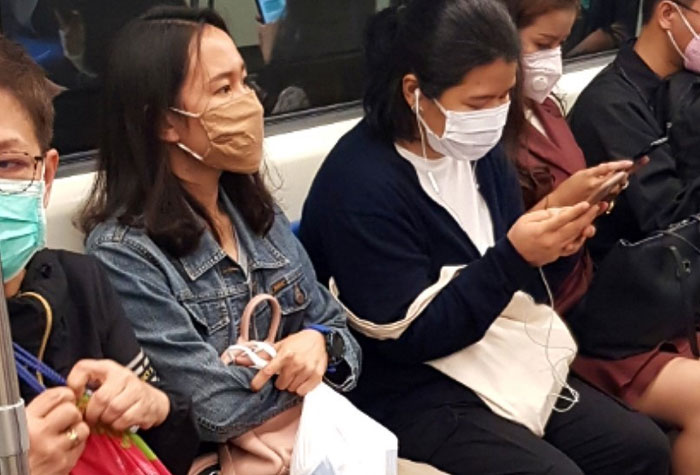The news today of a confirmed case of novel coronavirus infecting a taxi driver in Thailand is a significant development, as he had not visited China. Until now all confirmed cases had direct links to Wuhan, except for a household person-to-person case in the US. As we all suspected, the valiant efforts in Wuhan and all the airport screening can never be 100% effective, especially as people may be infectious before any symptoms appear. Fortunately the symptoms do not look to be so severe unless a person has pre-existing conditions. However, customer concerns will be understandably high as the ‘novel’ aspect of the new coronavirus is attracting a lot of press coverage – so that adds extra challenges to operational managers planning their response.
Staff communication about handwashing and reporting illness are measures we’ll all be doing already, but use of masks by customer facing staff is a more difficult consideration.
Wearing a loose-fitting paper mask gives very limited protection to the wearer from airborne viruses, although it can be useful to prevent accidental contamination via droplets from coughing or touching the mouth, but it does create a barrier to customer communication.
During the 2003 SARS outbreak I was in Hong Kong and Taiwan working for an international retailer – and I noticed there’s an art to timing the use of masks by customer facing staff. Move too soon, and it spooks customers who thing your business is contaminated, but move too late and it looks like you are not taking proper precautions.
To judge the timing of a move to staff wearing masks it’s good to monitor the mood on social media – and my view is that the news from Thailand will spread faster than the virus – so it’s time to consider the introduction of the more visitble controls – masks, sanitizing routines, suspend use of customer order screens etc. We’ve all been doing the right things – hand (and phone) washing is still the number one control – but now its time to be seen doing the right things.
And if you’re in Asia and you’ve not stocked up on surgical mask – you’re too late. China has already bought up all the surgical masks (bet you wished you’d given in to that ‘panic buying’ impulse now. But the good news is that a decent pm 2.5 anti-pollution mask can be just as effective at stopping droplet contamination – just don’t order any with exhale valves, as they would by-pass the filtration. And we need to ensure staff know to wash hands when changing the mask, and we need enough supplies in the stores to replace masks after use.
Keep calm and carry on

